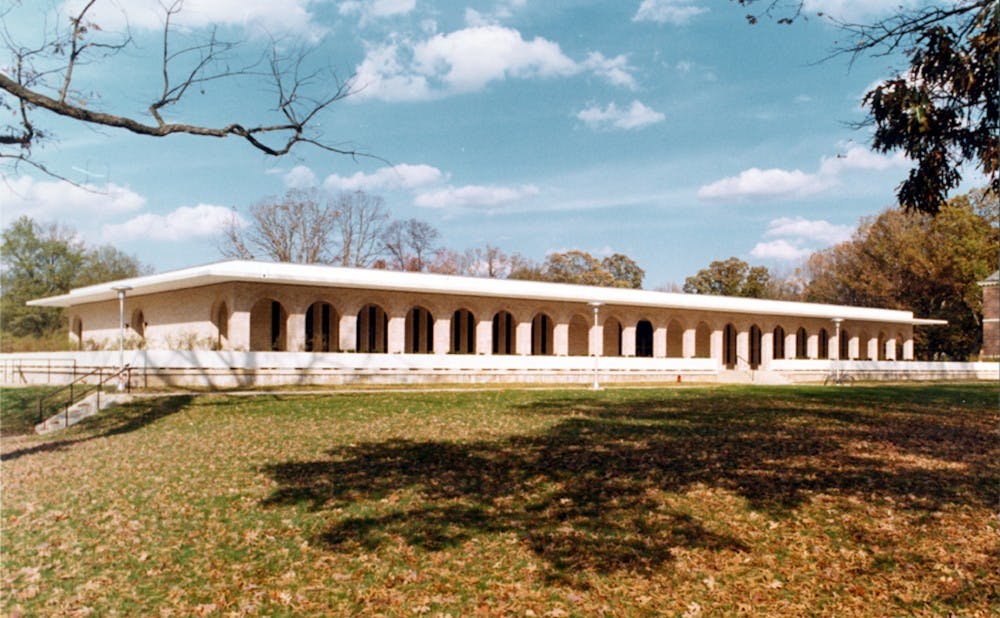With the start of a new semester, Duke’s Music department is introducing some new changes and innovative courses. A class titled “Musical Instruments: Engineering Music” opened for the Spring semester, and the Duke University Musical Instrument Collections (DUMIC) welcomed a new curator, Assistant Professor Roseen Giles, Jan. 1.
Taught by Matthew Zeller, a PhD student in the Music department studying timbre and orchestration with a background in organology, the new course will examine musical instruments and their historical, cultural and artistic significance through an interdisciplinary and hands-on approach. By dissecting piano and violin and looking at the inside these instruments, students enrolled in the course will gain a deeper understanding of the intersection between music, science, technology, engineering and economics. Students will also have the opportunity to make their own electric guitar.
“[What prompted me to create this course was] the desire to share my enthusiasm about the interconnectivity of technological innovation and artistic innovation, and that throughout history, they go together,” Zeller said. “If a student is able to learn to look at an object and interpret something about the society that made that object, then I think the course has accomplished its goal.”
Many Duke students probably know how to play a musical instrument, but likely few have taken a close look at their instruments and learned about what they are made up of, how they make sound, and what kind of intricate engineering and human creativity are hidden inside. Zeller’s new course fills in this gap and offers a new way to think about and appreciate music.
Of course, the successful launch of Zeller’s class was not without the help of DUMIC, which serves as a perfect complement to the course and lends Zeller many interesting historical instruments to facilitate his teaching. Beginning with the G. Norman and Ruth G. Eddy Collection of Musical Instruments, which came to Durham in 2000, DUMIC has grown its collections to include over 900 instruments, many of which are still in playable condition and are frequently used in concerts.
“If you have any experience playing an instrument, you know how intimate that relationship is, in the sense that the way you make music is actually dependent on the instrument you are using,” Giles said. “The instruments can tell us, by their very construction, what kind of music was made at that time, which is necessarily different from now. And so that kind of thing is really cool for somebody to imagine, whether or not you are a proficient musician — you’ve been studying for years — or you’re just somebody who plays music for fun.”
As the new curator, Giles has many plans for DUMIC in the hope to make it more well-known and accessible to the public. Because the collections are currently open by appointment only, one of the first things she said she wants to change is to start having museum hours, allowing people to stop by and relish the collections. She also aspires to increase DUMIC’s collaboration with the academic faculty, since many objects in the Collection can serve as great learning materials in classrooms. Furthermore, Giles wishes to establish partnerships with some of the rare collections on West Campus, while continuing the Rare Music Concert series and the cooperation with the Nasher Museum of Art.
One of the most prominent instruments in the collection is a fortepiano made by Muzio Clementi & Co. sometime between 1805 and 1810. Another highlight of the collection is also a piano — one that had been made into a cabinet with built-in bookshelves and a fabric door. A third piano is on display that can play itself: A player only has to insert a piece of paper with punched holes on it, and the piano will produce the notes by itself. Equally impressive is a half-wind, half-keyboard instrument, now extinct, and paintings on the wall that explain the design and engineering inside different instruments.
With the Music department’s new class and plans for the future of DUMIC, there is a lot for arts lovers to look forward to in the new semester.
Get The Chronicle straight to your inbox
Signup for our weekly newsletter. Cancel at any time.

